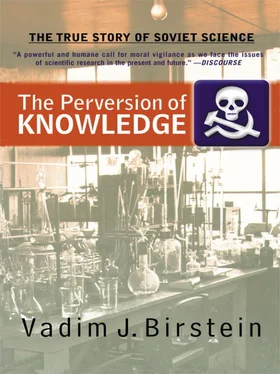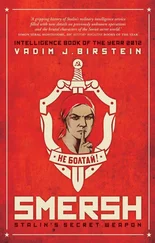
The original (from December 1920) VCheKa-KGB building at Lubyanka (Dzerzhinsky) Square (before rebuilding), 1926. (Postcard from Rashit Yangirov Archive [Moscow])
According to the materials from the archive of a former OGPU/NKVD agent named Pavlovsky, the VCheKa/GPU financed its existence with bribes and smuggling and from confiscations during searches and arrests. This blatant criminality created a climate of corruption that has permeated the security service from its birth up to the present day. Special commissions for combating smuggling and bribery were used not only for their stated purpose but also to establish “green lines” for smuggled goods and bribes. Each secret agent was allowed to smuggle up to 200 gold rubles’ worth of goods into the country. In 1921, the VCheKa Administrative-Organizational Department (OAU) was put in charge of coordinating all financial activity (among other duties). This department supervised cinemas, restaurants, and show business in Moscow and Petrograd and ran its own chain of shops, which sold the belongings of arrested or executed persons. It also had branches abroad, such as a Soviet cinema in Berlin. 53
At the beginning of 1920, the plenipotentiary of the VCheKa Special Department (OO), 54Yakov Agranov, 55fabricated the first political show trial against the allegedly anti-Soviet Tactical Center group. Even though the task of the OO was to combat counterrevolution and spies in the Red Army, this show trial involved many scientists. In January 1920, the OO was headed by Dzerzhinsky himself, with Ivan Pavlunovsky (1888–1937) as deputy head. There were four “plenipotentiaries” within it, Vyacheslav Menzhinsky, Artur Artuzov (1891–1937), Karl Lander (1883–1937), and Yakov Agranov. The future NKVD commissar Genrikh Yagoda was in charge of administration; V. Gerson was the OO secretary.
During the preparation of the Tactical Center trial, principles and methods used in many future cases were developed. In February 1920, the VCheKa arrested a group of alleged counterrevolutionaries, two of whom, Professors Nikolai Vinogradsky and Sergei Kotlyarevsky, soon began to cooperate with Agranov’s team of investigators. They gave detailed testimonies against their imprisoned colleagues and even acted as stool pigeons. 56From August 16 through 20, 1920, the Supreme Revolutionary Tribunal, chaired by VCheKa deputy chairman Ivan Ksenofontov, heard the Tactical Center case in the hall of the Polytechnic Museum. The first Soviet general prosecutor, Nikolai Krylenko, 57claimed in his opening remarks: “During this court session we will deal with the trial of history against the activity of Russian intelligentsia.” 58
According to Krylenko and the official VCheKa version, 59the Tactical Center was a secret political organization that had been established in February 1919 and consisted of three clandestine groups: the Council of Men in Public Life (SOD), headed by Dmitrii Shchepkin and Sergei Leontiev; the National Center, headed by Nikolai Shchepkin and Sergei Trubetskoi; and the Union for the Regeneration of Russia, led by a historian, Sergei Melgunov. All the leaders had been professors and prominent politicians before the Bolshevik coup. Supposedly, the National Center was an underground military organization planning a military coup in Moscow. In fact, the VCheKa had only intercepted one letter from two liberal politicians, Myakotin and Fedotov, to one of the White movement leaders, General Anton Denikin, appealing for him to change his “policy in the agrarian, Jewish [i.e., to stop Jewish pogroms administered by the soldiers of Denikin’s army] and national questions.” 60The Petrograd branch of the National Center was also accused of contacts with the British spy Paul Dukes, a former assistant conductor of the Mariinsky (now Kirov) Theater who worked for British intelligence in Russia in 1918–1919. According to the VCheKa version, Dukes helped to finance the National Center’s groups in Moscow and Petrograd. 61Nothing of this sort is mentioned in Duke’s memoirs.
Before the trial, the VCheKa Special Department arrested 1,000 alleged members of the Tactical Center and investigated the case. The newspapers published a list of sixty-seven executed members of the National Center, including two of its leaders, Nikolai Shchepkin and the Moscow schoolteacher (gymnasium) Aleksandr Alfyorov, and Alfyorov’s wife, Aleksandra, also a teacher. Before being shot, Aleksandra Alfyorova managed to smuggle a letter written in prison to her pupils: 62
Dear girls!
My fate has been decided. I have the last request to you: continue to study as well as you did when I was alive. The Motherland will need your knowledge, never forget this. I wish you well and to have an honest and interesting life.
A. Alfyorova.
The Revolutionary Tribunal pronounced the Tactical Center guilty of plotting the overthrow of the Soviet state with a view to establish a military dictatorship under Admiral Aleksandr Kolchak, the former Arctic explorer who was leading the White forces in Siberia. 63However, Prosecutor Krylenko did not produce any proof that the center in fact existed. There was no program or membership lists, nor any coordinated plan of action. He demanded the death sentence for twenty-four defendants, including the geneticist Nikolai Koltsov, whose trial notes are discussed in Chapter 4. Leontiev, Dmitrii Shchepkin, Trubetskoi, and Melgunov were sentenced to death, for contact with the British spy Dukes, among other things.
Aleksandra Tolstaya, the youngest of the writer Leo Tolstoy’s daughters, who was also among the arrested, showed amazing self-composure during the trial and managed to get the best of Krylenko on at least one occasion, which she vividly described in her memoir:
“Citizen Tolstoi,” Krylenko asked me, “what was your role in the Tactical Center?”
“My role,” I answered in a loud voice, “my role consisted in heating the samovar for the members of the Tactical Center.”
“And serving tea?”
“Yes, and serving tea.”
“That was the only part you had in the business?”
“Yes.” 64
The audience laughed and the prosecutor was ruffled. Tolstaya was imprisoned for a few months in a Moscow monastery that had been turned into a concentration camp; she later emigrated to the United States, where she organized the Tolstoy Fund to help Russian immigrants.
To punish some of the defendants, Krylenko invented what became later known as “ sharashki, ” special institutions where imprisoned professionals worked according to their specialty: “Steiman, because of his profound legal knowledge, as well as Stempkovsky, because of his same knowledge in agriculture, should be put in a camp for two years, where they should be used as professionals according to the Regulations in the concentration camps.” 65However, Krylenko suggested releasing the prominent economist Nikolai Kondratiev. Later, in 1930, Kondratiev was arrested as an alleged leader of the other OGPU-invented Labor Peasant Party and sentenced in 1932 to eight years’ imprisonment. On September 17, 1938, he was resentenced to death and was shot immediately after the trial. 66
But in 1920 the grip of the Bolsheviks was not yet complete. Tolstaya recalled that on the last day of the trial, after Krylenko demanded the death sentence for five of the defendants, Leon Trotsky, then commissar of defense, suddenly appeared at the trial and spoke in favor of one of these defendants. 67It became known that on Lenin’s personal intervention, to whom many prominent and influential people appealed, the case against the center was closed. 68For the five defendants, the death sentence was instantly commuted to ten years’ imprisonment. The others were sentenced to various terms, and some were pardoned. Later, many of the defendants emigrated or were exiled abroad.
Читать дальше












